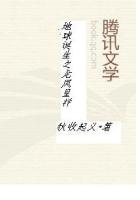You should not forget that there were as bright intellects, and men who possessed equal elements of greatness in past generations as in this, and that deeds have been performed in earlier times which, at best, the men of the present day can only hope to rival. Why then should we not profit by the experiences of the past; and as our lives are shot at best, instead of following the ruts of our predecessors, start on the road of life where they left off, and not continue to repeat their failures? I cannot say why, unless it proceeds from the natural buoyancy of youth, self-confidence in its ability to overcome all obstacles, and to carve out futures more dazzling than any successes of the past. In this there is a problem for you to solve. Yet I may do well by acknowledging to you, to-day, that after an active military life of no mean duration, soldiers of my length of service feel convinced that they might have learned wisdom by listening to the experience of those who preceded them. Had they been prepared to assume that experience as a fact at starting, and made departures from it, instead of disregarding it, in the idea that there was nothing worthy of note to be learned from a study of the past, it would be safe to assume that they would have made greater advances in their day.
Were I to give you my views in extenso, applicable to the occasion, I could only repeat what has been well and vigorously said here by distinguished persons in the past, in your hearing, on occasions of the graduation of older classes than your own.
You are impatient, doubtless, as I was in your time, and if you have done as my class did before you, you have already thrown your books away, and only await the moment of the conclusion of these ceremonies to don the garb of the officer or the civilian. The shell of the cadet is too contracted to contain your impatient spirits. Nevertheless, if you will listen but for a few minutes to the relation of an old soldier, I will repeat of the lessons of experience a few of those most worthy of your consideration.
There is but one comrade of my class remaining in active service to-day, and I think I might as truly have said the same ten years ago.
In the next thirty years, those of you who live will see that your numbers have become sensibly reduced, if not in similar proportion.
Some will have studied, have kept up with the times, been ready for service at the hour of their country's call, been prepared to accomplish the purposes for which their education was given to them.
Some will have sought the active life of the frontiers, and been also ready to perform their part in the hour of danger.
A few will have seized the passing honors.
It may have depended much upon opportunity among those who were well equipped for the occasion, who gained the greatest distinction; but it cannot for a moment be doubted that the roll of honor in the future of this class will never again stand as it stands to-day.
It will be a struggle of life to determine who among you will keep their standing in the contest for future honors and distinctions.
You who have been the better students here, and possessed the greater natural qualities, have a start in the race; but industry, study, perseverance, and other qualities will continue to be important factors in the future, as they have been in the past.
Through continuous mental, moral, and physical development, with progress in the direction of your profession and devotion to duty, lies the road to military glory; and it may readily come to pass that "the race will not be to the swift, nor the battle to the strong," as you regard your classmates to-day.
It must be admitted, however, that great leaders are born.
A rare combination of natural qualities causes men to develop greatness. Education and training make them greater; nevertheless, men with fewer natural qualities often succeed, with education and training, when those more richly endowed fail to reach the higher places, and you have doubtless witnessed that in your experience here.
A man in a great place in modern times is not respectable without education. That man must be a God to command modern armies successfully without it; yet war is a great school; men learn quickly by experience, and in long wars there will be found men of natural abilities who will appear at the front. It will be found, however, in the long run, that the man who has prepared himself to make the best use of his natural talents will win in the race, if he has the opportunity, while others of equal or greater natural parts may fail from lack of that mental and moral training necessary to win the respect of those they command.
Towards the close of our civil war, men came to the front rank who entered the service as privates.
They were men of strong natural qualities. How far the best of them would have proceeded had the war continued, cannot be told; but it may be safely assumed that if they possessed the moral qualities and the education necessary to command the respect of the armies with which they were associated, they would have won the highest honors; and yet our war lasted but four years.
Some of them had the moral qualities, some the education; and I have known of those men who thus came forward, some who would certainly have reached the highest places in a long race, had they had the training given to you.
War gives numerous opportunities for distinction, and especially to those who in peace have demonstrated that they would be available in war; and soldiers can win distinction in both peace and war if they will but seize their opportunities.















